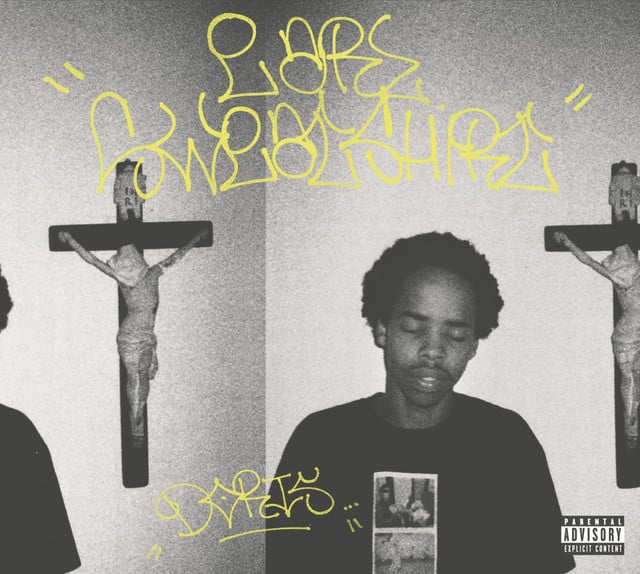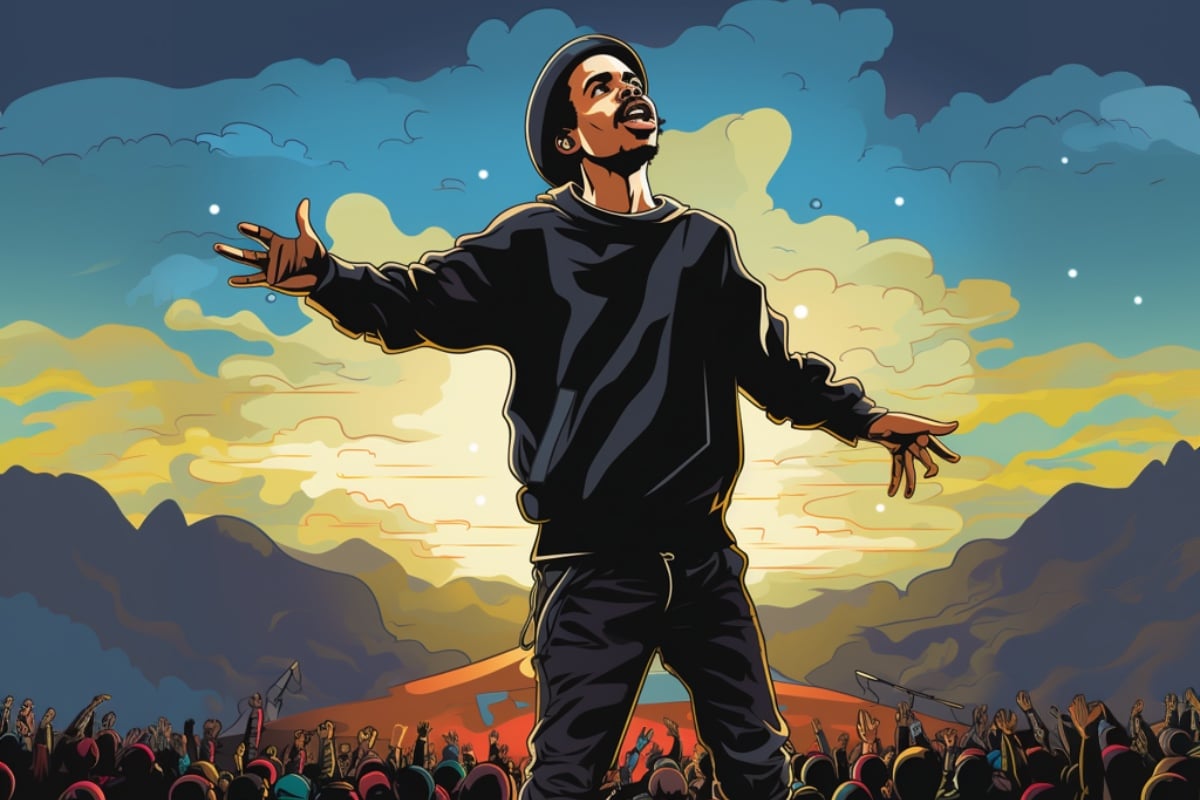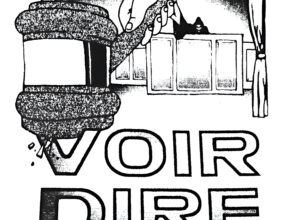Released: 2013 • Features: Vince Staples, Casey Veggies
“Hive” is a gritty and raw track by Earl Sweatshirt featuring, Vince Staples and Casey Veggies, painting a vivid, unapologetic picture of their experiences growing up in their respective neighborhoods in California. With lyrics packed full of life’s harsh realities, critiques of the police system, and subtle commentary on societal issues, the song serves as a raw diary of life on the streets, while pointing out the harsh inequities of society.
The hook, performed by Vince Staples, sets the scene with a commentary on societal and economic realities in his neighborhood. Phrases like “Whippin’ hoopties, tryna boost raw chronic” and “Bruh, I don’t fuck with no cop, rollin’ with that flow swamp” describe a life of drug dealing and a deep distrust towards law enforcement, both symptomatic of systemic issues, such as the lack of opportunities and racial profiling.
Earl Sweatshirt, in his verse, employs a fast-paced, intricate rhyme scheme that speaks to his disillusionment with the world. Lines like “From a city that’s recession-hit, Stress niggas could flex metal with peddle to rake pennies in” highlight the economic hardship present in his environment, marked by recession and subsequent desperation. His reference to “Jekyll-ish” and “Hyde” further expose the dualistic struggle experienced by those around him, torn between societal norms and the compelling need for survival.

Staples takes over with powerful lines like “‘87 rooftop, Bronson” and “Whippin’ hoopties, tryna boost raw chronic”. These references to 1987 and actor Charles Bronson famous for vigilante roles, suggest an atmosphere of violence and substance use that’s deeply entrenched in his memories of growing up. They again paint a picture of survival, hinting at the prevalence of crime as a result of limited resources.
Staples and Earl Sweatshirt continue trading verses, peppering their verses with contemporary references. A line like “Spitter of the Little Nick, nimble, rick-rolling”, symbolizes the manipulation and cunningness that street life sometimes demands. Staples’ verse adds depth to the song’s narrative, depicting the stark reality of gun violence, illegal activities, and the constant struggle for everyday survival.
Staples’ verse also addresses societal issues with lines like “Sellin’ thizz, couldn’t tell ’em what the recipe is, Got ’em wishin’ that they never gave these weapons to kids”. He criticizes the system for supplying weapons to young people which inevitably causes more harm than security. He expresses the frustration and desperation of a community left with no option but to resort to violence as a means of protection and survival.
Casey Veggies delivers the final verse, opening with the brutally honest line “Quit with all that tough talk, bro, we know you niggas ain’t about shit”. The verse is filled with unfiltered truths about his experiences navigating through societal adversities. References to historical events such as the Holocaust (“Bodies piled, Auschwitz”) create striking contrasts, underscoring the gravity of the situations Veggies speaks about.
Throughout “Hive,” Earl Sweatshirt, Vince Staples, and Casey Veggies tackle a mixture of personal and political issues, presenting their perspectives on life, survival, violence, and systemic racism. Using their impressive lyrical skills, they create a raw and brutally honest depiction of their experiences, inviting listeners to confront realities that they may otherwise prefer to ignore.
What sets “Hive” apart is its unflinching portrayal of the systemic issues that plague marginalized communities. By leveraging the power of hip-hop, these artists have managed to elevate these critical conversations into mainstream consciousness. Their lyrics are not only designed to entertain but also to provoke thought and inspire action.
In conclusion, “Hive” is a high-octane, candid exploration of the realities of street life. The rough, raw, and unabashed lyrics and talent of Earl Sweatshirt, Vince Staples, and Casey Veggies offer a critical commentary on societal issues, giving voice to the experiences many face but few dare to articulate. Their commitment to lifting the veil on these often-dismissed issues makes “Hive” more than just a hip-hop song; it’s a cultural critique, a call to action, and a raw glimpse into the realities of life for so many in America.








